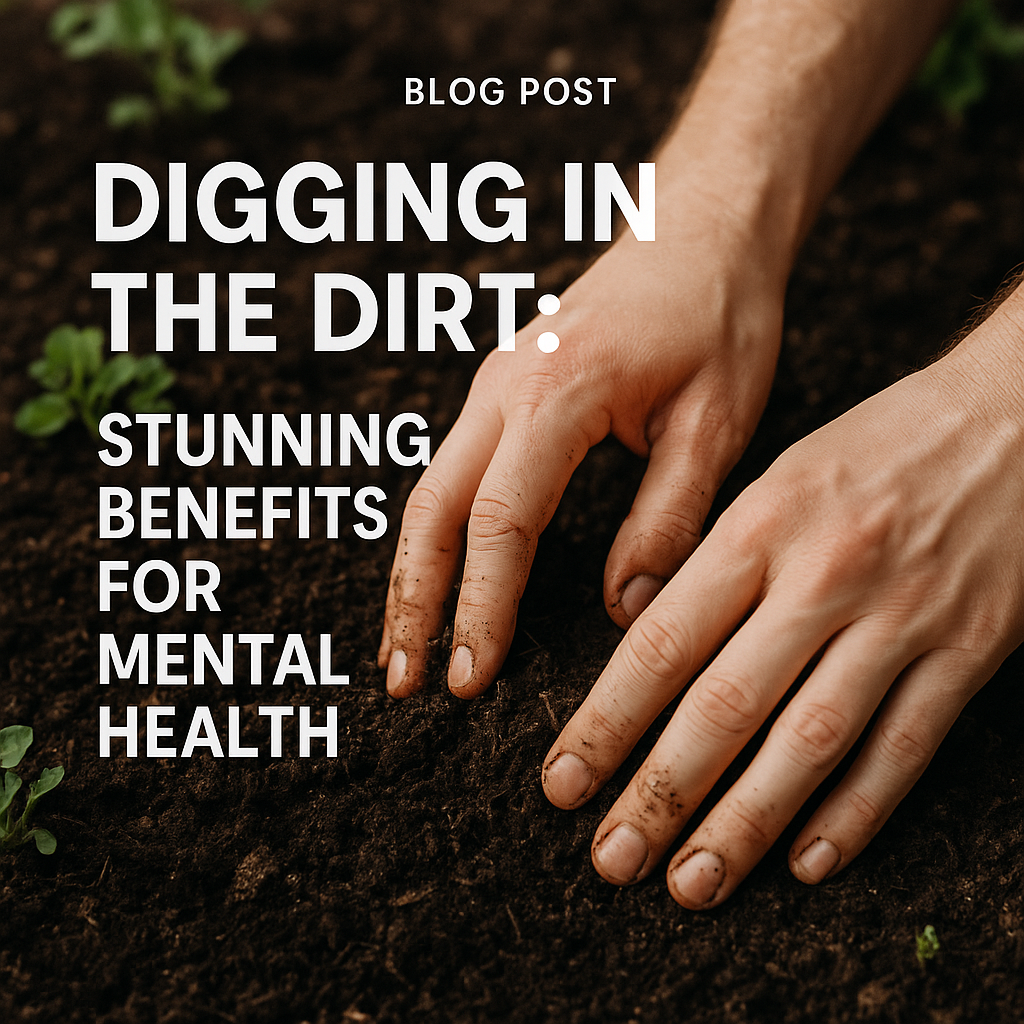Digging in the Dirt: Stunning Benefits for Mental Health
Digging in the Dirt: Stunning Benefits for Mental Health
Digging in the dirt can provide stunning benefits for mental health, and as research continues to surface, the connections between nature, gardening, and psychological well-being become more apparent. Engaging with the earth not only cultivates plants but also nurtures the mind, offering therapeutic advantages that are increasingly recognized by the scientific community.
The Therapeutic Powers of Gardening

Gardening is often seen as a recreational activity, but emerging studies show that it can be far more than just a hobby. Engaging with soil and plants promotes a sense of accomplishment, reduces stress, and improves overall mood. The act of digging in the dirt can be meditative, allowing individuals to disconnect from the fast pace of modern life and reconnect with the natural world.
Psychological Benefits
A review of various research articles suggests that interactions with nature significantly reduce feelings of anxiety and depression. According to one study highlighted by Review Journal, gardening cultivates the release of serotonin and dopamine, neurotransmitters that contribute to feelings of happiness.
Some of the major mental health benefits reported include:
– Stress Reduction: Engaging with the earth can diminish cortisol levels. A study indicated that people who garden for even a short period experience a notable decline in stress.
– Mindfulness and Presence: The focus required in tending to plants grounds the individual, enabling mindfulness that can alleviate anxiety and racing thoughts.
– Enhanced Social Interaction: Community gardens often allow for shared experiences among participants, fostering a sense of belonging that combats feelings of isolation.
Contrast in Perspectives
While the positive mental health outcomes of gardening are largely supported by many experts, some critics warn that gardening is not a universal solution. For individuals suffering from severe mental health issues, physical activity alone may not suffice. The nuances of mental illness are complex, and gardening cannot address these issues in isolation.
A Balanced Approach
Evidence suggests that while gardening can be a beneficial supplementary treatment, it must be coupled with other forms of therapy for those facing significant mental health challenges. Mental health professionals advocate for holistic approaches, combining gardening with other strategies such as counseling, medication, or lifestyle changes.
Moreover, access to outdoor spaces and community gardens can vary significantly by region, leading to disparities in who can harness these benefits. Advocates for mental health and well-being emphasize the importance of making gardening accessible to all as part of broader health initiatives.
Practical Steps for Integrating Gardening into Daily Life
For those looking to reap the mental health benefits of gardening, several practical steps can be taken:
1. Start Small: Beginners can engage with container gardening or small balcony setups, which require minimal space and effort.
2. Community Involvement: Join local gardening clubs or community gardens to build connections while cultivating plants.
3. Connect with Nature: Regular visits to parks or nature trails can complement gardening activities, allowing individuals to immerse themselves in the healing powers of nature.
4. Mindful Practices: Incorporate mindfulness practices while gardening, focusing closely on the sensory elements such as the texture of the soil or the scents of the plants.
A Personal Touch
Many people report that their gardening experiences have been transformative. One individual shared that spending time in their garden helped them overcome anxiety by providing a safe space for reflection. This anecdotal evidence echoes findings in scientific literature that underline the profound effect of nature on mental health.
As our understanding of mental well-being continues to evolve, the role of gardening as a beneficial practice remains significant. The evidence points toward a future where planting, nurturing, and harvesting can play an essential role in not just sustaining our bodies, but also nurturing our minds.
In conclusion, while digging in the dirt offers stunning benefits for enhancing mental health, it should be seen as part of a broader toolkit that includes various therapeutic approaches. As more research is conducted, the time may come when gardening becomes an integral component of mental health treatment plans, accessible to all who seek solace in the soil.





